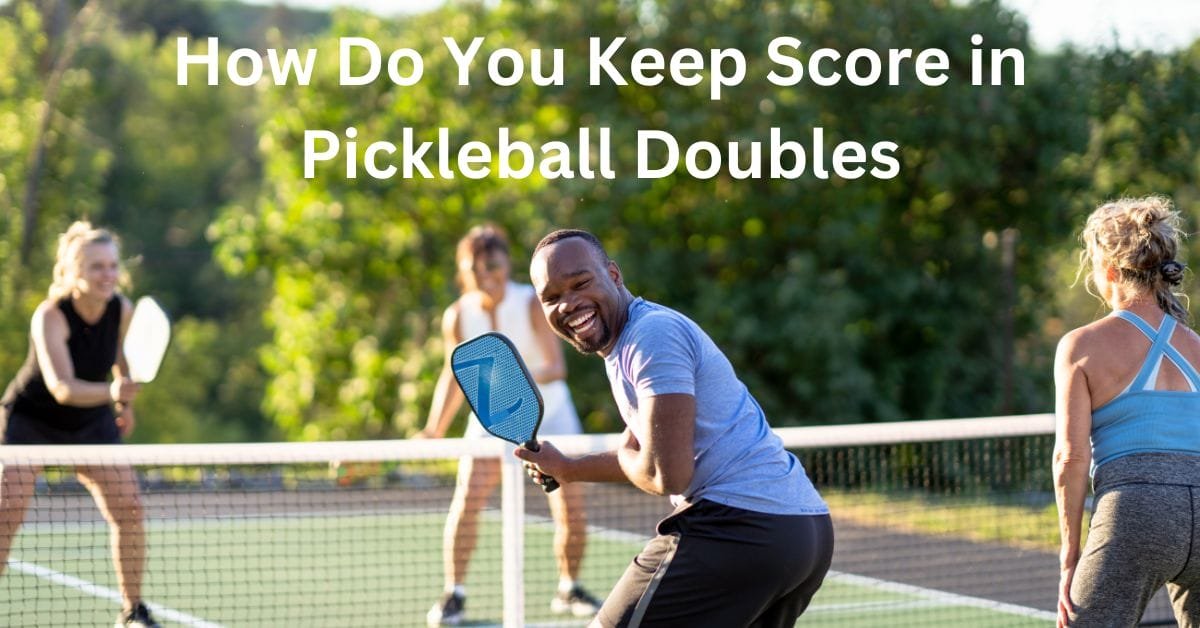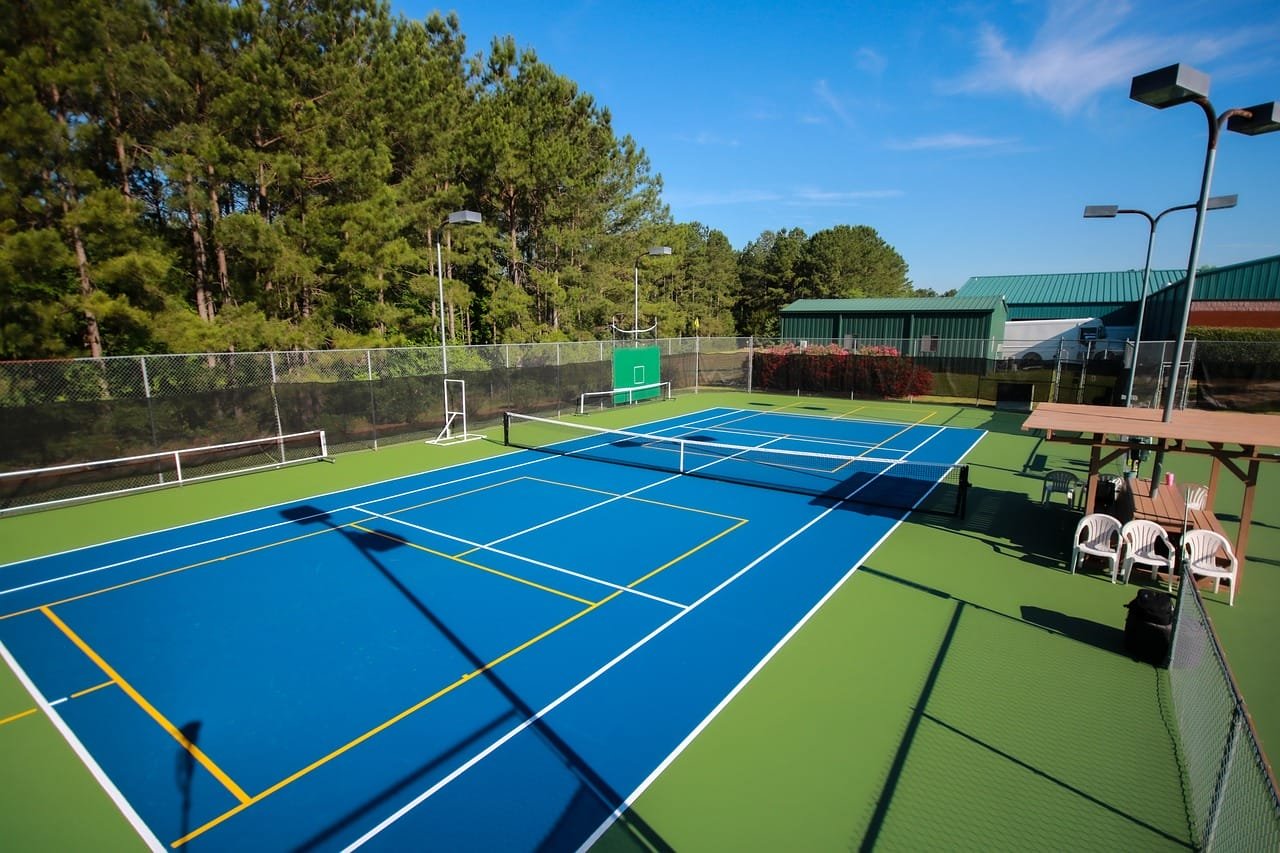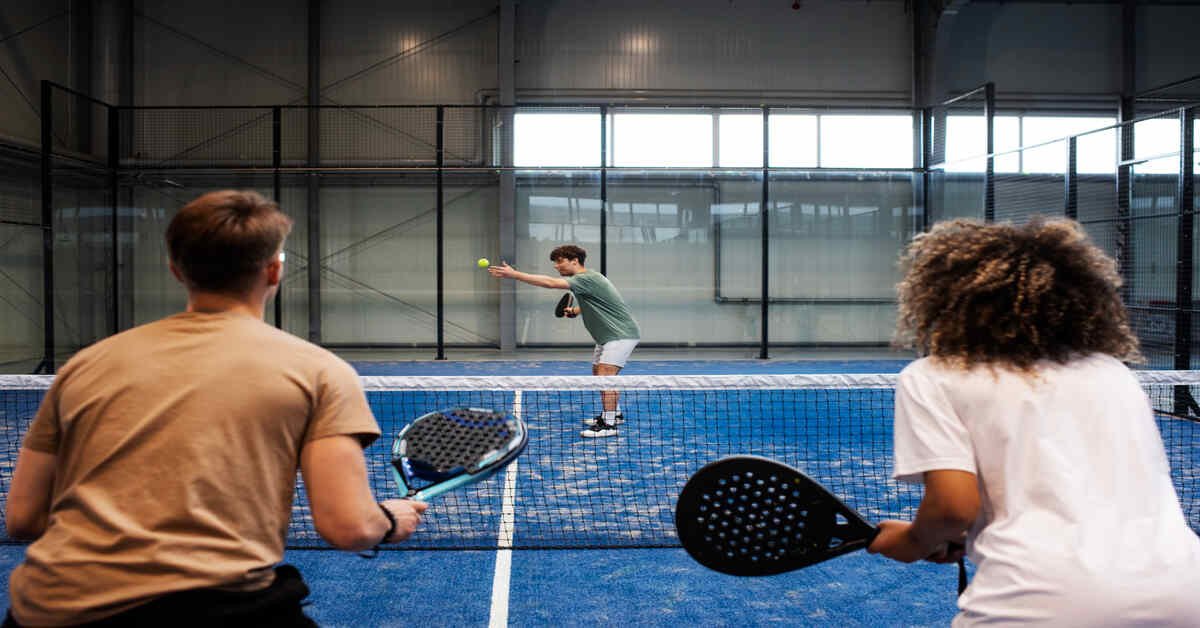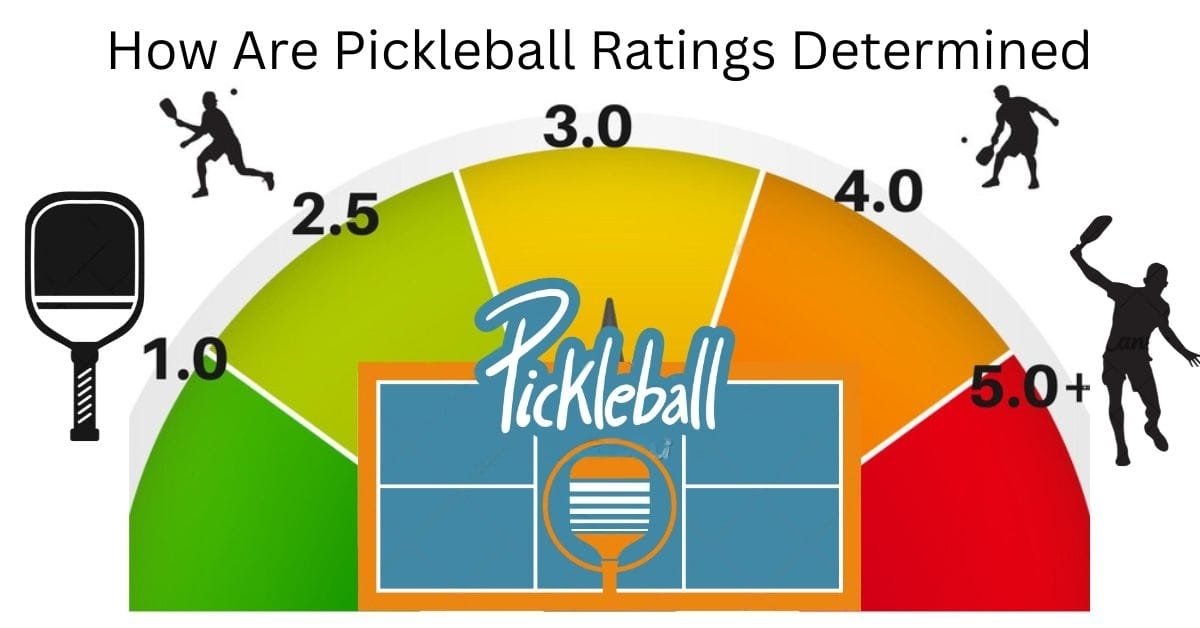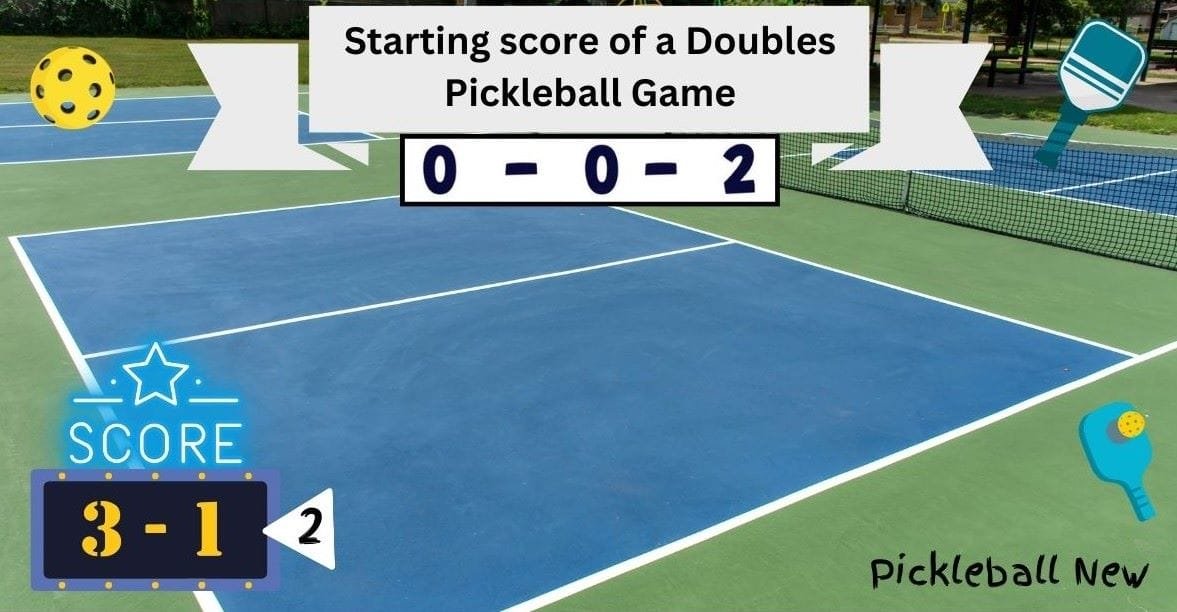How Pickleball Got Its Name: A Guide to Its Origins
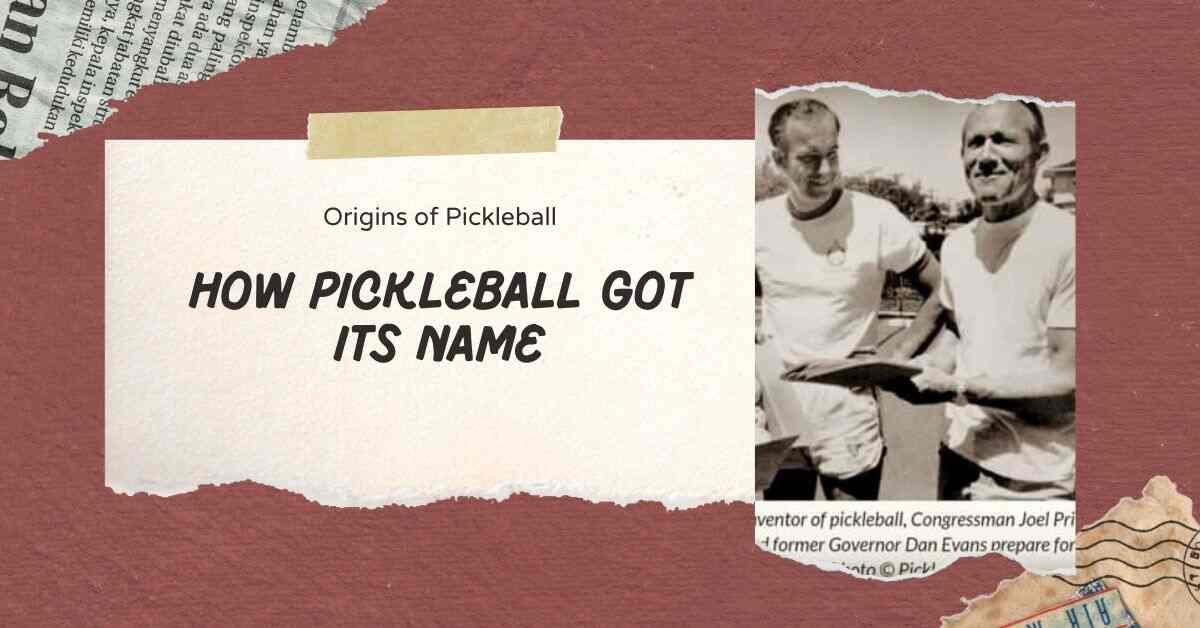
Discover the intriguing origins of the name “pickleball” and how this popular sport came to be known for its unique title. Explore the history behind the name and the fascinating story of how pickleball got its name.
People have become frantic about pickleball, a sport which is played by blending all the features of tennis, badminton and ping pong around the world with its unique gameplay and buzzing community. However, beyond its engaging dynamics lies a curious question: What is the origin of this sport which is known as “pickleball”? In this article, we will step through time and dig deep into the exciting journey of pickleball name change.
Pickleball, which appeared in the middle of the 20th century, was just a backyard game which families used in their free time to fill their leisure with good things. Integrating the original sports techniques, pickleball developed an ease of play and was affordable, so people of all ages and abilities commonly played it.
Moscow Circus brings authentic circus spirit to life in downtown area
The legend behind the naming of pickleball is imbued with the spirit of innocence and carelessness found in the past when you could freely create things in your backyard. The origins of this game are traced to Joel Pritchard, Bill Bell and Barney McCallum who took wood planks, a net and a backyard to invent a game in the wilderness.
Pritchard’s dog, Pickles, was widely recognized by the community, and even if he was chasing a stray ball and sometimes getting off track, his presence added a boost of fun and uncertainty to the game. It was Findley, this playful canine companion, that gave birth to the endearing nickname “pickleball,” and ever since then, the story is told that the sport is a lighthearted one and this got its name from Findley.
Pickleball: A Unique Moniker
The nickname “pickleball” just screams for a warm spot on the side of sports. The way it merges the ordinary and the wonderful makes it the main idea of my favourite activity. Whose wording was “pickleball” transformed into a symbol of unity, accessibility and both “pickleball” as well as “community as a whole”.
It is much more than just a name, it is a router of the sport’s casual nature and the team spirit among the club players irrespective of their age, size or background. Whether you have been an enthusiast of the game for a long time or someone who just came across the name first time in his life, pickleball must be the exact name that you need to go to play and experience the feel of a unique playing field game.
The Story Behind How Pickleball Got Its Name
At its embryonic stage pickleball underwent several nomenclature transformations, including ‘paddle tennis’ and ‘wiffle ball tennis’. However, it was not until the early 1960s that the formal name ‘pickleball’ was adopted which paved the way for pickleball uniqueness and continuing growth.
The Successful Trend of Pickleball Into the Hierarchy.

The amazing journey of pickleball joining the ranks of the mainstream game has been a perfect storm of factors that enabled it to rise high in the public gaze. From the humble start of a home hobby to planet planet-raging success in the entertainment industry, gathering people who love the game and the community as well has been the cause. The growth of pickleball in the past few years has not left anyone indifferent as this hybridized sport combines athleticism, tactics and using social connection for gameplay.
Through the rising influence of pertinent individuals such as top professional athletes, movie stars, and fitness enthusiasts, pickleball has hit the sports world from all directions. Their endorsements and participation, in turn, have helped the sport get more popular. Consequently, their contribution has resulted in better person rates and the establishment of pickleball clubs and sports leagues in communities anywhere in the world. With time, pickleball will dramatically keep up its trend. Therefore, the history of pickleball this far is evidence of the power of passion, commitment, and the unity of sports.
Pickleball’s Place in Sports Culture
Pickleball has carved out a unique and cherished place in sports culture, emphasising community, camaraderie, and inclusivity. Unlike traditional sports with stringent rules and hierarchical structures, pickleball fosters a welcoming environment where players of all ages and skill levels can come together to enjoy the game. Whether played casually among friends at a local park or competitively in organized tournaments. Pickleball embodies the values of sportsmanship and mutual respect.
Its grassroots origins and grassroots growth have helped cultivate a sense of belonging among its participants, creating a tight-knit community bound by a shared love for the sport. As pickleball continues to gain popularity and recognition on a global scale, its place in sports culture only becomes more prominent, serving as a beacon of unity and joy for players and enthusiasts worldwide.
The rapid internationalization of Pickleball.
Whether it be the United States or its home soil, the reach of pickleball has expanded globally to grab the hearts of sport-loving people. Indeed, the international popularity of pickleball is remarkable; from Europe to Asia, the sport has been developing local courts and clubs which in turn hold together a network of fans who care about it a lot.
Challenges and Controversies
While the game of pickleball is starting to gain in popularity, it is not without its fair share of impact and controversies. The rapid expansion of eSports increasingly gains attention among experts, who are largely focused on protecting the game’s integrity. The increasing popularity of pickleball opens a big door for standardized systems of rules and regulations so that fair play and competitive integrity are maintained.
Moreover, device specifications regulations, court dimensions and format preferences are the significant factors that have brought about more debates in pickleball. Striking the balance between preserving pickleball as a recreational sport. Its progression to a higher competitive level presents builders and players with the key challenge as they seek to keep the sport inclusive. Also accessible in all capacities and at the same time elevates it to a more globalized stage. Resolving these problems means coming together, compromising, and a long-term dedication to upholding the spirit of pickleball to future generations.
Accident As a Life Changer: This is in the context of the Enduring Attraction of Pickleball.
Ultimately, pickleball’s sustaining charm is origination in the art which goes beyond the boundaries as well. That is all that is capable of bringing people together in the quest for, on the one hand, enjoyment, fitness and, on the other hand, friendship. Pickleball, like many other sports, does not require a high level of special skills or long-term training to be played most of the time.
The truth is that this game targets players of all age groups, playing abilities, and backgrounds. Specially designed for these groups, its high level of inclusion is based upon a set of simple rules, numerous adaptable gameplay options and lack of negative impact.
On the other hand, pickleball serves not only as a platform for competition but also as a harmonious assembly of players whose collective humanity is unique and beyond. The boundaries of the court unite them in their shared experiences and shared laughter. Either through competition or casually, pickleball provides an amicable environment. In which people can create strong friendship bonds, exercise their bodies and brains as well as have fun. Regardless of the growth of pickleball’s popularity, its everlasting position as a sport for everyone stipulates that it will stay champion for years to come.
Pickleball’s Future

As pickleball continues to evolve, innovations in technology and gameplay are poised to shape its future trajectory. From advanced equipment designs to digital platforms enhancing player connectivity. The possibilities for pickleball’s growth and evolution are limitless, ensuring its enduring relevance in the ever-changing landscape of sports and recreation.
Conclusion
The evolution of pickleball’s name from its humble beginnings to its current stature as a global phenomenon is a testament to the sport’s enduring appeal and cultural significance. As pickleball enthusiasts around the world continue to celebrate its rich heritage and embrace its future potential, one thing remains certain: the spirit of pickleball will continue to unite and inspire generations to come.
FAQs
What makes pickleball different from other racquet sports?
Pickleball combines tennis, badminton, and ping pong elements, featuring a unique court size, equipment, and scoring system.
Is pickleball suitable for all ages and skill levels?
Yes, pickleball is renowned for its accessibility, welcoming players of varying ages and abilities to participate and enjoy the game.
Are there any professional pickleball tournaments?
Yes, pickleball has a thriving competitive circuit, with professional players competing in tournaments worldwide for prize money and recognition.
Can pickleball be played indoors and outdoors?
Absolutely! Pickleballs can be played indoors, outdoors, and in makeshift setups in parks and community centres.
How can I get started with pickleball?
To begin your pickleball journey, consider joining a local club or community centre offering lessons, clinics, and recreational play opportunities. Whether you’re a seasoned athlete or a novice enthusiast, pickleball offers something for everyone to enjoy and explore. So grab your paddle, step onto the court, and experience the joy and excitement of pickleball firsthand!
Pickleball, with its unique blend of athleticism and sociability, continues to capture the hearts of players and spectators alike. As the sport evolves and expands, its name will remain a testament to its rich history and enduring legacy.


